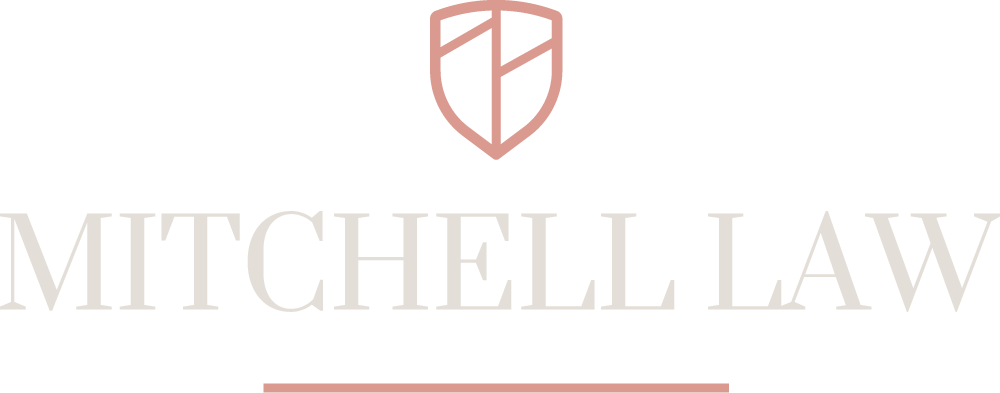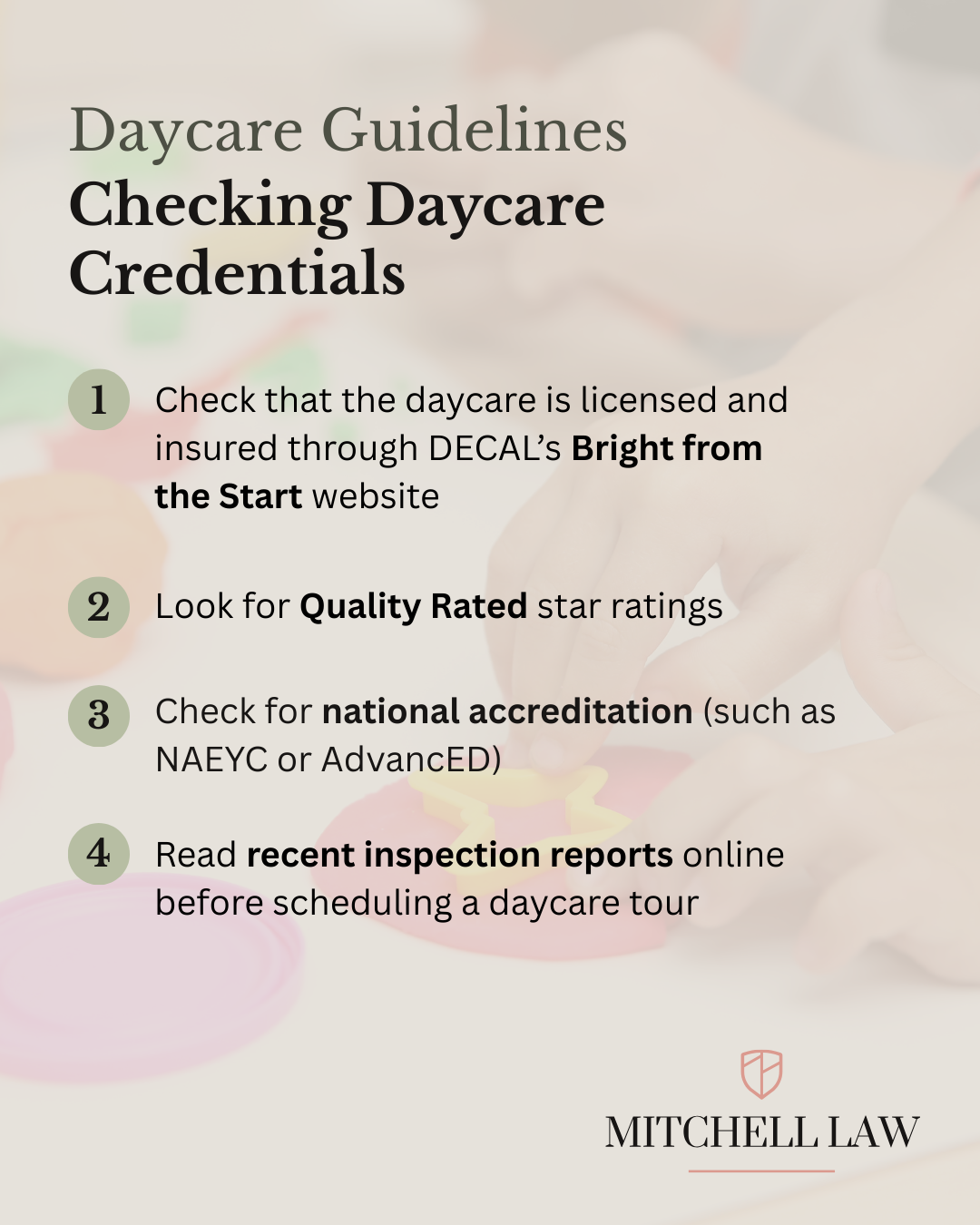How to Choose a Good Georgia Daycare for Your Child (So You Don’t End Up Needing an Injury Attorney)
When you first start looking for daycare, it can feel a little like writing a book report on a subject you didn’t pick: you know the stakes are high, the details matter, and your teacher (in this case, your child) is counting on you to get it right. Georgia parents face dozens of options from small in-home daycares to larger childcare centers. Yet, the challenge isn’t just finding a spot with availability. It’s making sure you’re choosing a place that keeps your child safe, nurtured, and happy. The good news? With the right approach, you can identify a high-quality daycare before problems arise (and long before you’d ever need to call an injury attorney).
Quick steps for checking daycare credentials:
Check that the daycare is licensed and insured through DECAL’s Bright from the Start website
Look for Quality Rated star ratings (one, two, or three stars)
Check for national accreditation (such as NAEYC or AdvancED)
Read recent inspection reports online before scheduling a daycare tour
One of the first things to check when evaluating Georgia daycare options is whether the facility is licensed, accredited, and insured.
Licensing ensures the daycare meets state health and safety standards. At the same time, accreditation signals the program has gone above and beyond in areas like curriculum, teacher training, and environment. Georgia does not require daycares to carry liability insurance, which means some parents are surprised to learn there is no available insurance to compensate them when a child is injured at an uninsured location. It is important for families to know in advance and ask the right questions to uncover whether a daycare carries insurance.
In Georgia, the Department of Early Care and Learning (DECAL) runs the Bright from the Start program, which oversees licensing and provides quality ratings through its Quality Rated system. Parents can search the Quality Rated database to see inspection reports, citations, and star ratings for daycares across the state. Accreditation, meanwhile, may come from organizations like NAEYC (National Association for the Education of Young Children). The DECAL website reflects initial information regarding the insurance status of each daycare. However, it is always important to ask the director or owner of the location whether it is insured despite the information reflected on the DECAL website.
Key questions to ask about staff and child safety:
Confirm staff-to-child ratios meet or exceed Georgia standards
Look for CPR and first aid certification for all teachers
Ask about sick child policies and emergency procedures
Evaluate security measures for drop-off and pick-up
Be mindful of staff turnover rates, as frequent new faces can be a red flag
Even the most colorful classrooms and fancy playgrounds don’t matter if the staff isn’t attentive and trained. When visiting a daycare, pay attention to the staff-to-child ratio. Georgia law sets required ratios for specific age groups. For example, DECAL regulations require at least one teacher for every six infants or non-walking toddlers to promote good supervision. Some centers like Primrose Schools or Goddard Schools in metro Atlanta often exceed the minimum requirements and have more teachers assigned to a classroom.
Safety training is just as important. Ask whether teachers have up-to-date CPR and first-aid certification and what the center’s emergency procedures look like. How do they handle sick children? What happens if a child suffers an injury? What security measures are in place for pick-up and drop-off? These details may feel small in the moment, but they’re precisely what prevent bigger problems down the road.
What to look for in a daycare environment and communication from teachers:
Cleanliness and organization are non-negotiable for safety
Playgrounds and classrooms should encourage safe exploration
Look for consistent parent updates (daily reports, apps, or notes)
Meet with the director and assess whether they have managed the center for a long or short time
Transparent communication builds long-term trust
A daycare’s environment should feel safe and welcoming not just for your child, but for you, too.
Look closely at cleanliness, playground equipment, and whether classrooms feel organized or chaotic. A good environment balances structure with play, giving children room to learn and explore while staying protected from hazards.
Equally important is communication.
The best daycares, like the Wieuca Day School in Buckhead or Clifton School in Decatur, keep parents updated with daily reports, photos, or quick notes about meals, naps, and milestones. Open communication also means transparency. Child injuries can happen even without negligence by a caregivers. A school should communicates with parents openly and honestly when issues and injuries arise, which may include letting parents review surveillance video footage. If you feel brushed off or left in the dark, that’s a red flag.
Choosing a good Georgia daycare isn’t just about finding a place that has space; it’s about finding one that creates a safe, supportive environment where your child can thrive. By focusing on licensing and accreditation, staff and safety, and environment and communication, you’re not only protecting your child but also setting them up for a positive start in life.
And here’s the bigger picture: doing your homework up front using DECAL’s Bright from the Start database, visiting top-rated centers, and asking the right questions means you can feel confident in your choice rather than second-guessing what more you could have learned after an incident occurs. Being proactive works for Georgia parents who want peace of mind. Because at the end of the day, the right daycare isn’t just childcare— it’s a foundation for your child’s future.

